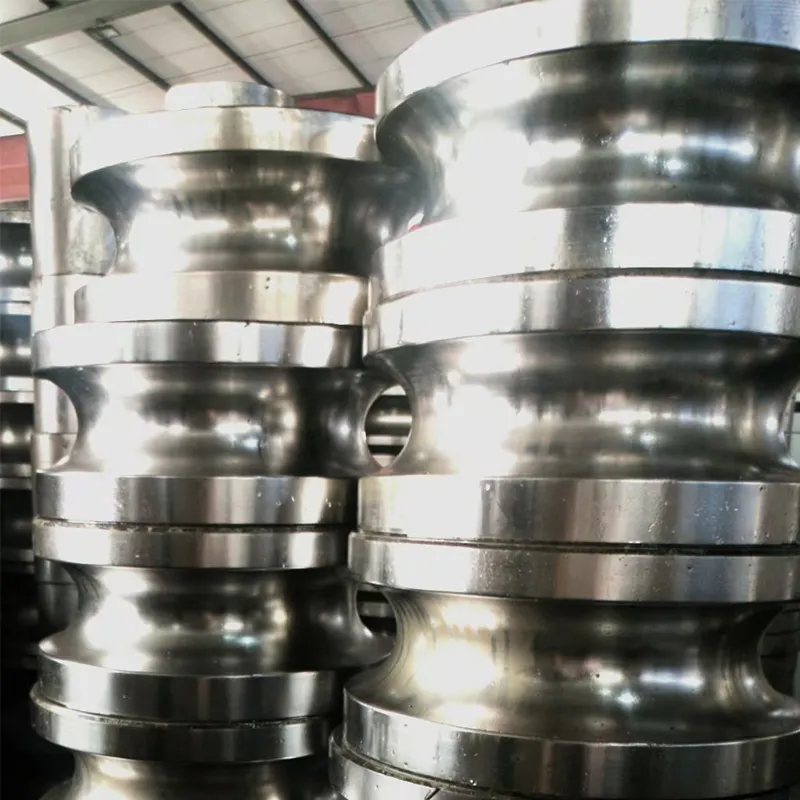Efficient Solutions for Pipe Manufacturing Equipment and Technology Improvements
The Evolution and Technology of Pipe Making Machines
In the industrial world, efficiency and precision are paramount. One of the key components in various manufacturing processes is the pipe making machine, a piece of equipment that has evolved dramatically over the years. This article will explore the significance of pipe making machines, their evolution, modern technological advancements, and their applications in various industries.
The Importance of Pipe Making Machines
Pipe making machines are essential in the production of pipes used for various applications, including plumbing, construction, and industrial processes. These machines are designed to create pipes from a variety of materials, including metal, plastic, and composite materials. The efficiency and accuracy provided by modern pipe making machines have revolutionized the industry, allowing manufacturers to meet growing demands while maintaining quality.
Historical Background
The history of pipe making can be traced back to ancient civilizations where rudimentary methods were employed to create pipes from natural materials like wood and clay. With the advent of the Industrial Revolution, the manufacturing process underwent significant changes. The introduction of steam-powered machinery allowed for mass production of pipes, increasing both the speed and scale of production.
In the 20th century, technological advancements led to the development of specialized pipe making machines
. These machines utilized high-speed processes and advanced materials to produce pipes that adhered to stringent specifications. The introduction of computer numerical control (CNC) technology further enhanced the accuracy and efficiency of pipe making.Modern Technologies in Pipe Making Machines
Today, pipe making machines are equipped with state-of-the-art technology that allows for the production of high-quality pipes in various shapes and sizes. Some of the key technological advancements include
1. Automation Modern pipe making machines are highly automated, minimizing the need for manual intervention. Automated systems control the entire manufacturing process, from cutting and shaping to welding and finishing, which significantly reduces production time and labor costs.
pipe making machine

2. Advanced Materials Handling Pipe making machines are designed to handle a wide range of materials, including plastics and metals, with ease. These machines can process various grades and type of materials, which broadens their applicability in different industries.
3. Quality Control Systems Integrated quality control systems monitor the production process in real-time, ensuring that each pipe meets the required specifications. This capability reduces waste and enhances product reliability.
4. Customization Modern machines allow for the customization of pipe dimensions and specifications to meet specific client requirements. This flexibility is particularly beneficial for industries that require specialized pipes for unique applications.
5. Eco-friendly Innovations With increasing environmental concerns, many manufacturers are now focusing on producing eco-friendly pipe making machines. These machines utilize energy-efficient processes and materials that minimize environmental impact while maintaining high production standards.
Applications Across Industries
The versatility of pipe making machines enables their use across various sectors, such as
- Construction Pipes produced by these machines are vital for water supply, sewage, and drainage systems in urban development projects. - Oil and Gas Specialized pipes made for the oil and gas industry are essential for transporting hydrocarbons safely and efficiently. - Manufacturing and Industrial Applications Pipes are used in numerous industrial processes, including chemicals, pharmaceuticals, and food processing. - Automotive The automotive industry relies on precise pipe systems in engines, exhausts, and fuel lines.
Conclusion
In summary, pipe making machines represent a crucial component of modern manufacturing processes. Their evolution from simple hand-operated tools to sophisticated automated systems has transformed the industry. With ongoing advancements in technology, these machines continue to improve in efficiency, precision, and environmental sustainability. As industries evolve and expand, the demand for high-quality pipes will only increase, solidifying the importance of pipe making machines in our modern world.
-
High Frequency Straight Seam Welded Pipe Production Line-BzZhou Xinghua Machinery Equipment Manufacturing Co., LTD.|line pipe steel&welded gas pipeNewsJul.30,2025
-
High Frequency Straight Seam Welded Pipe Production Line-BzZhou Xinghua Machinery Equipment Manufacturing Co., LTD.|High Precision&Automated SolutionsNewsJul.30,2025
-
High Frequency Straight Seam Welded Pipe Production Line - BzZhou Xinghua Machinery Equipment Manufacturing Co., Ltd.NewsJul.30,2025
-
High Frequency Straight Seam Welded Pipe Production Line-BzZhou Xinghua Machinery Equipment Manufacturing Co., LTD.|Precision Welding, High EfficiencyNewsJul.30,2025
-
High Frequency Straight Seam Welded Pipe Production Line|BzZhou Xinghua|Precision Welding&EfficiencyNewsJul.30,2025
-
High Frequency Straight Seam Welded Pipe Production Line - BzZhou Xinghua|Precision Engineering&EfficiencyNewsJul.30,2025


